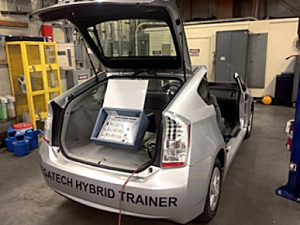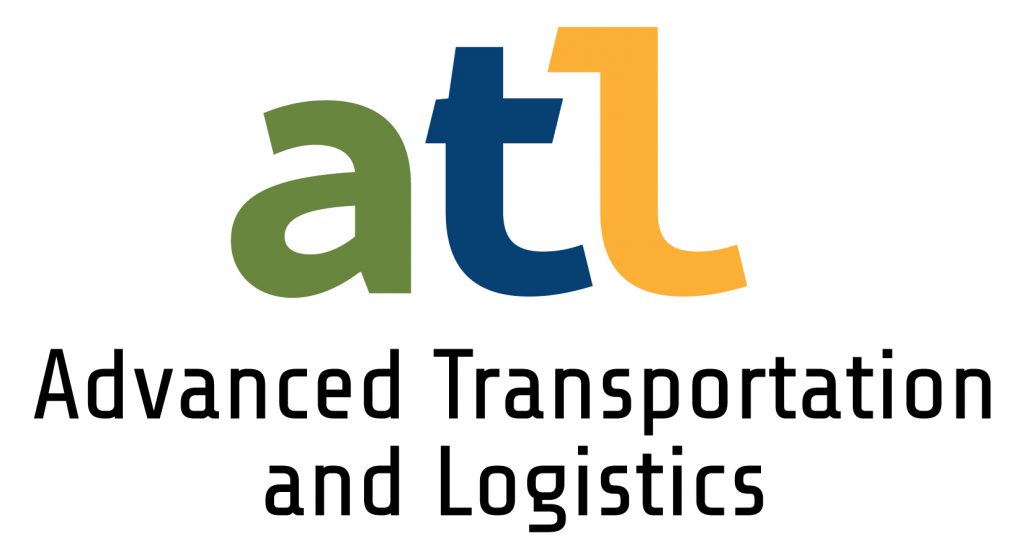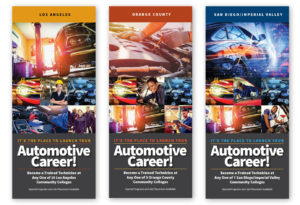
Klein Hybrid Engine Trainer at Victor Valley College, Inland Empire/Desert Region
Community colleges need to present a high-tech image to remain competitive in the automotive market. Efforts to do just that are underway in the Inland Empire/Desert Region thanks to Strong Workforce funding.
Larry McLaughlin, ATL Deputy Sector Navigator in the Inland Empire/Desert Region, is overseeing an effort to revamp the region’s automotive curriculum to focus on electric, hybrid, and alternative fuel vehicles. This process includes training for faculty and purchasing new vehicles for students to use for hands-on experience.
McLaughlin said all of this work is in support of increasing student interest in the automotive field and making sure they are prepared for the jobs they will be doing once they graduate.
“We are working on updating our image,” McLaughlin said. “Hybrid vehicles help us to present high tech image and a cleaner tech image.”
Beyond updating the curriculum and equipment, McLaughlin said the region’s colleges are also stepping up their outreach efforts to recruit students.
The region recently held a car show where they invited local high school students to look at alternative fuel vehicles and drive home the point that working on them will require more than a high school diploma. The event included a car raffle, which allowed McLaughlin to collect names and contact information from students then follow up with them after the event.
He said it’s too early to tell whether that work will lead to more students, but he’s pleased with the feedback he’s received thus far.
“The outreach we’re doing is going to impact enrollment numbers more than curriculum changes will,” McLaughlin said. “We’re trying to get the message across that, as these vehicles become more advanced, it will take more advanced training to work on them.”
The region’s faculty have been supportive of the changes and receptive to the professional development opportunities that come with them. Over the past year, training sessions have helped put instructors on a level playing field when it comes to electric, hybrid, and alternative fuel vehicles.
“When we started on this project, we had a variety of levels to deal with among faculty in terms of the skills they had on the vehicles,” McLaughlin said. “Some of our faculty had experience, but none had expertise. I’ve been so pleased that we’ve had such a collaborative faculty who have come out in large numbers to training events.”


